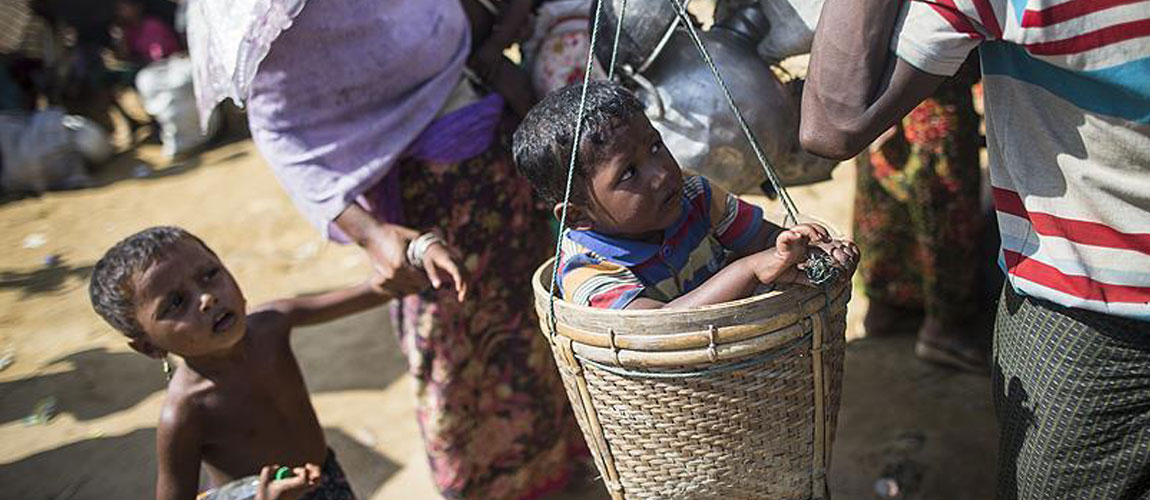More than 70 percent of school-aged Rohingya children living in refugee camps in Bangladesh are missing out on education, a leading child rights organization said Monday.
Calling for an urgent appeal, Save the Children urged for “an urgent and significant scale up of education programming for Rohingya children”.
The appeal came on the day UN chief Antonio Guterres visited refugee camps in Cox’s Bazaar.
The London-based nonprofit organization said most of the 327,000 Rohingya children in Bangladesh camps “arrived after violence, killing and sexual assault broke out in Myanmar’s northern Rakhine State on August 25 last year”.
Since Aug. 25, 2017, more than 750,000 refugees, mostly children and women, have fled Myanmar and crossed into Bangladesh after Myanmar forces launched a crackdown on the minority Muslim community, according to Amnesty International.
“They are being deprived of the right to learn basic skills like reading and writing, which would empower them to build a brighter future for themselves and their families,” said Mark Pierce, Save the Children’s Bangladesh director, in a statement.
“This is setting an entire generation of children up for a very bleak future,” Pierce added.
‘Education not luxury’
“Education isn’t an optional luxury; it’s a lifesaving intervention. It brings hope and opportunity to children, providing them with a return to familiar routines while helping to alleviate the psychosocial impact of violence and displacement.
“The Rohingya children who have access to informal learning opportunities in the camps, most attend sessions that run for just two hours per day, and often at levels far below their age grade,” he added.
Underlining the “need for quality education to help refugee children catch up,” Pierce urged the UN, the World Bank and Bangladeshi government to act on the issue.
“As the UN Secretary General, UN High Commissioner for Refugees and President of the World Bank visit the camps today and witness the grim conditions Rohingya children are living in, we urge them to do everything in their power to scale up the provision of quality education in the camps and give children hope for the future.
“We are also urging the Government of Bangladesh to recognize the right of Rohingya refugee children to education, and ensure that they have access to safe, quality and inclusive learning opportunities while they are displaced.”
The Rohingya, described by the UN as the world’s most persecuted people, have faced heightened fears of attack since dozens were killed in communal violence in 2012.
At least 9,400 Rohingya were killed in Rakhine from Aug. 25 to Sept. 24 last year, according to Doctors Without Borders.
In a report published recently, the humanitarian group said the deaths of 71.7 percent or 6,700 Rohingya were caused by violence. They include 730 children below the age of 5.
The UN documented mass gang rapes, killings — including of infants and young children — brutal beatings, and disappearances committed by security personnel.
In a report, UN investigators said such violations may have constituted crimes against humanity.
“We continue to call for a long-lasting solution to the crisis that allows for safe, dignified and voluntary repatriation of the Rohingya, which respects the basic rights of children and their families and is underpinned by international law,” Pierce added.
Save the Children is running about 100 learning centers for Rohingya children “with the support of the Bangladeshi government” in Cox’s Bazaar, the group said.
Source: Anadolu Agency

